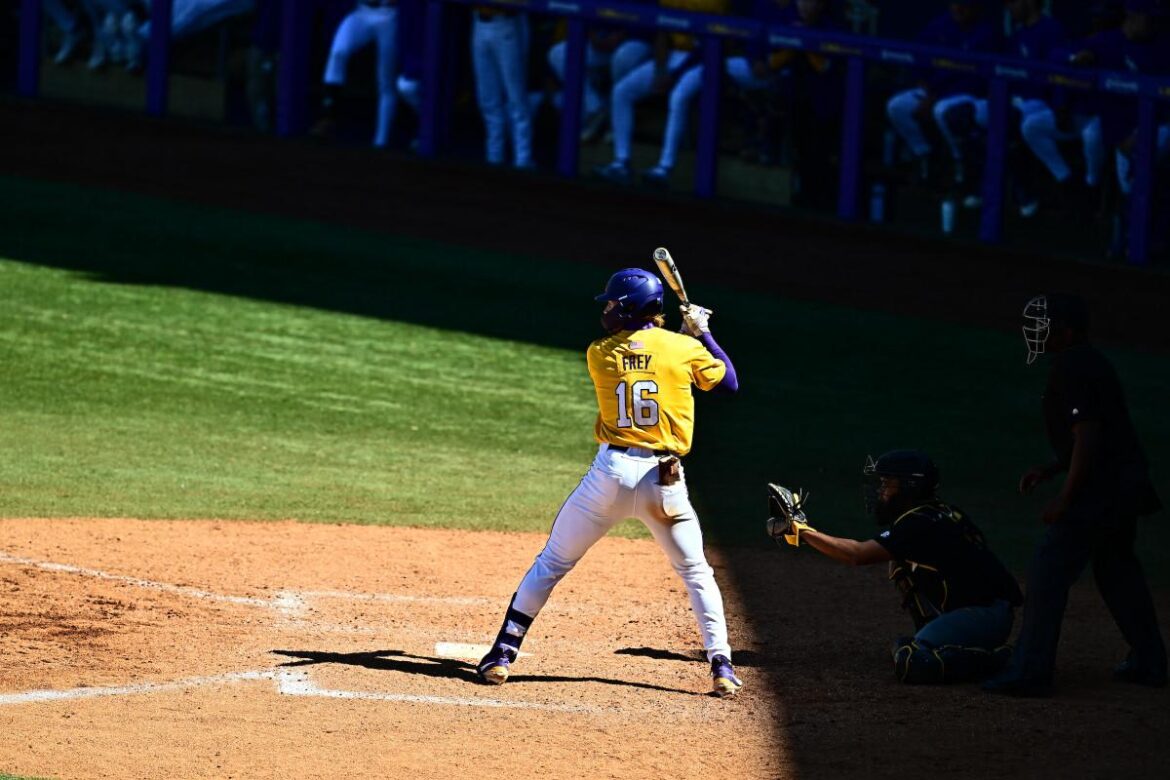In a notable turn of events for both the Minnesota twins and the LSU baseball programme, highly-touted prospect Ashton Larson has opted to forgo a professional career in Major League Baseball. After being selected by the Twins in the recent MLB Draft, Larson announced his decision to decline the team’s offer and commit to playing college baseball at Louisiana State University. This choice not only highlights Larson’s dedication to furthering his development as a player but also signals a promising future for LSU’s baseball team as they gear up for an exciting season. The decision has sparked conversations among fans and analysts alike about the implications for both Larson’s career trajectory and the evolving landscape of player development in college baseball.
Ashton Larson Prioritizes College Development Over Professional Baseball Opportunities
Ashton Larson’s decision to forgo the chance to join the Minnesota Twins organization highlights a growing trend among young athletes who value education and personal development over immediate professional gains. The LSU baseball signee made headlines by choosing college competition, which he believes will provide a more robust foundation for his future, both in sports and academics. This move underscores the idea that college baseball can serve as an essential stepping stone, not just to enhance skills on the field but also to cultivate personal growth, broaden perspectives, and achieve a well-rounded educational experience.
Many athletes are beginning to recognize the importance of prioritizing their collegiate careers, including:
- Skill Development: The college habitat often offers advanced coaching and training facilities.
- Academic Opportunities: A degree can provide long-term benefits that a professional career might not guarantee.
- Networking: Playing at the collegiate level opens doors to invaluable connections within the sports industry.
With an ever-increasing number of skilled high school players entering the draft, the landscape of amateur baseball is evolving. Larson’s choice sends a powerful message about the importance of strategic decision-making and reinforces the notion that sometimes the long game is more rewarding than the swift win.
- Advertisement -
Impact of Larson’s Decision on LSU Baseball Program and Future Prospects
Ashton larson’s decision to bypass a lucrative offer from the Minnesota Twins in favor of joining the LSU baseball program has significant implications for the team’s future. This move not only showcases Larson’s commitment to developing his skills at a premier collegiate program but also positions LSU as a renewed powerhouse in college baseball. With the addition of a player of Larson’s caliber, the Tigers are expected to bolster their roster, enhancing their competitive edge in the Southeastern Conference (SEC).His decision reflects a shift in outlook among young athletes, prioritizing collegiate development over immediate professional opportunities.
The potential impact of Larson’s choice goes beyond his individual contributions on the field. It signals to prospective recruits that LSU remains a top destination for baseball talent, highlighting the program’s success in nurturing players who transition to the professional level. With Larson set to join an already strong lineup, the Tigers could see an uptick in recruitment from other blue-chip prospects who are eager to play under the esteemed coaching staff. This trend could foster a culture of excellence within the program, creating a cycle of successful player development and sustained competitiveness.
Navigating the Path: What Aspiring athletes Can Learn from Larson’s Choice
As aspiring athletes look to carve their paths in the competitive sports landscape, the choice made by Ashton Larson following his signing with LSU is a pivotal moment worth examining. Larson opted against accepting a professional baseball contract from the Minnesota Twins, demonstrating a strategic decision that many young athletes can learn from.By choosing to play college baseball, he prioritizes his development, allowing himself a crucial period to hone skills, gain exposure, and mature both as an athlete and an individual. the decision highlights several key aspects of navigating the sports world:
- Long-term Development: College baseball offers a structured environment to refine techniques and understand the game’s intricacies.
- Education First: By committing to college,athletes maintain their educational pursuits,balancing academics with sports.
- Increased Visibility: competing at the collegiate level can enhance opportunities for future drafts, providing exposure to scouts and professional teams.
This decision also underscores the importance of aligning personal goals with career aspirations. Athletes face immense pressure to turn professional at a young age, but Larson’s choice serves as a reminder that sometimes delaying professional ambitions can lead to better outcomes.Engaging in college athletics not only equips players with essential skills but also builds invaluable relationships and networks that can aid in their careers. as seen in the table below, the path taken by many successful players showcases the significance of this collegiate phase:
- Advertisement -
| Player | College/University | Draft Year |
|---|---|---|
| Mike Trout | High School (not enrolled) | 2011 |
| Clayton kershaw | High School (not enrolled) | 2006 |
| Jake Arrieta | Texas Christian University | 2010 |
| Stephen Strasburg | San Diego State University | 2009 |
Wrapping Up
Ashton Larson’s decision to forgo a professional opportunity with the Minnesota Twins in favor of pursuing his collegiate baseball career at LSU exemplifies the balance many young athletes face between immediate prospects and long-term aspirations. With a strong commitment to his education and the opportunity to develop his skills at one of the nation’s premier programs, Larson’s choice underscores the significance of collegiate athletics in nurturing future talent. As he prepares for his freshman season in Baton Rouge, fans and analysts alike will be closely watching to see how his journey unfolds and shapes the future of LSU baseball.


